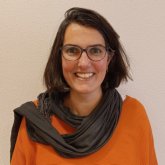The PhD student will investigate how to detect, quantify and qualify smiled speech and how the perception of it affects social interactions. To that end, an audiovisual database of smiled speech will be collected to enable studies into the detection and perception of smiled speech, investigating its acoustic and perceptual characteristics (in healthy subjects and Parkinson’s patients), and investigating the influence of smiling on impression formation. Secondments will take place at Audeering (Germany) and Maastricht University. We are seeking a cross-disciplinary PhD candidate with a background in Computer Science/Computational Linguistics/Digital Phonetics and an interest in speech communication science, human technology interaction, and machine learning. You will be working at the Human Media Interaction group in which computer science meets social science to investigate, design, and evaluate novel forms of human-computer interaction.
Information and application
Are you interested in this position? Click on the “Apply now” button to be redirected to the official VoCS website, and include the following documents:
* A cover letter (maximum 2 pages A4), emphasizing your specific interest, qualifications, and motivation to apply for this position.
* A Curriculum Vitae, including a list of all courses attended and grades obtained, and, if applicable, a list of publications and references.
About the department
You will work in the Human Media Interaction group at the Faculty of Electrical Engineering Mathematics and Computer Science (EEMCS) of the University of Twente. The Human Media Interaction (HMI) group does research into multimodal interaction: from brain-computer interfaces to social robots to touch-sensitive technology. Many projects at the HMI group delve into how such interactive technologies may be used to support and enhance users with their tasks, or in daily lives. Within HMI, you will work in a team of people focusing on spoken language processing, conversational agents, and natural language processing. The HMI group is a multidisciplinary group of enthusiastic, kind, and passionate researchers with an open mind to science and society.
About the organisation
The faculty of Electrical Engineering, Mathematics and Computer Science (EEMCS) uses mathematics, electronics and computer technology to contribute to the development of Information and Communication Technology (ICT). With ICT present in almost every device and product we use nowadays, we embrace our role as contributors to a broad range of societal activities and as pioneers of tomorrow's digital society. As part of a people-first tech university that aims to shape society, individuals and connections, our faculty works together intensively with industrial partners and researchers in the Netherlands and abroad, and conducts extensive research for external commissioning parties and funders. Our research has a high profile both in the Netherlands and internationally. It has been accommodated in three multidisciplinary UT research institutes: Mesa+ Institute, TechMed Centre and Digital Society Institute.



